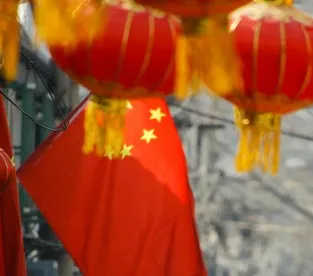China
On March 12, 2021, the State Administration for Market Regulation (SAMR), China’s antitrust regulator, issued fines against 12 tech companies for violating Article 21 of China’s Anti-Monopoly Law, which requires business operators to first submit a filing to Chinese antitrust authorities prior to implementing a concentration should either of two monetary thresholds be met.
-
The combined worldwide turnover of all business operators concerned in the preceding financial year is more than RMB10 billion (USD 1.5 billion), and the nationwide turnover within China of each of at least two of the business operators concerned in the preceding financial year is more than RMB400 million (USD 60 million).
-
The combined nationwide turnover within China of all business operators concerned in the preceding financial year is more than RMB2 billion (USD 304 million), and the nationwide turnover within China of each of at least two of the business operators concerned in the preceding financial year is more than RMB400 million.
Each of the 12 companies were fined RMB500,000 (USD 76,000), the maximum penalty currently allowed for unreported business concentrations. While the fines may appear relatively small given the size of the companies being punished, the fines may indicate intensified scrutiny over the nation’s tech giants and a renewed emphasis on pre-concentration filing compliance.
Japan
A. Guidelines formulated for freelance workers.
From February to March 2020, the Japanese Cabinet Secretariat, in cooperation with the relevant ministries and agencies, conducted an integrated survey to ascertain the actual situation of freelance workers (Freelancers) who do not belong to any company or organization.
On March 26, 2021, based on those survey results, the guidelines for Freelancers were formulated to protect Freelancers under the Antimonopoly Acts, Subcontract Acts, and Labor Laws.
The guidelines clarify the following main concepts relating to Freelancers under the Antimonopoly Acts:
|
1. |
|
Restrictions on the abuse of a dominant position in transactions with Freelancers. |
|
2. |
|
Delivery of documents clarifying the terms and conditions of transactions at the time of placing an order. |
|
3. |
|
The types of acts that may cause problems under the Antimonopoly Acts (abuse of a dominant position) and the Subcontract Acts. |
B. Follow-up: Conviction for bid-rigging in the construction of a magnetic levitation train.
On March 1, 2021, the Tokyo District Court convicted two construction companies and two former officials of each company of bid-rigging for the construction of a magnetic levitation train. The two former officials were sentenced to 18 months in prison, suspended for three years, and the two companies were ordered to pay 250 million yen (USD 2.25 million) each in fines. One of the two companies said it is considering an appeal.







 />i
/>i
